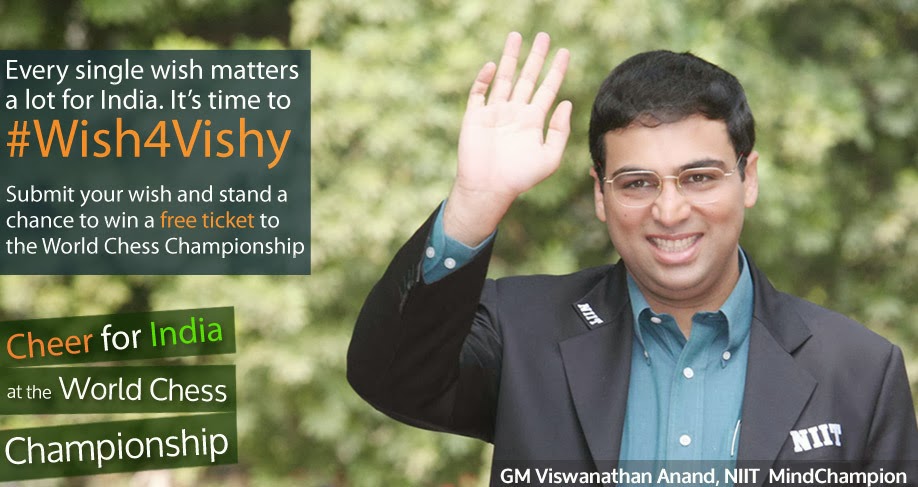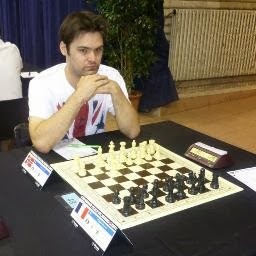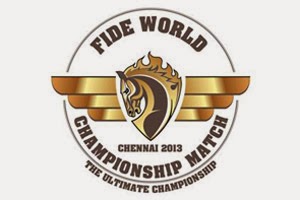Garry Kasparov: A Win For Carlsen In The Upcoming World Championship Match Will Be A Huge Win For The Chess World
Kasparov and Anand atop the World Trade Center prior to their 1995 World Championship match in New York City. Mayor Rudy Giuliani made the honorary first move. Kasparov won the match with 4 wins, 1 loss and 13 draws.
Garry Kasparov is the 13th World Chess Champion and was the world’s #1-ranked player for 20 years, until he retired in 2005.
Recent Posts
I am about to head to India, where I will first speak at the THiNK conference in Goa before heading to Chennai to visit the much-anticipated world championship match between defending champion Viswanathan Anand, playing in his native city, and young Norwegian challenger Magnus Carlsen.
I won’t be there for the first game of the match on the 9th, but will arrive for games three and four before heading further east with Ignatius Leong on my first tour of Asian chess federations as part of my campaign for the presidency of the international chess federation, FIDE.
I am very familiar with both players, for different reasons, and of course I could not miss this spectacle. Anand was one of my top rivals for what I could call the second half of my chess career if I break it into “Karpov” and “post-Karpov” eras. As the great Anatoly finally slowed, Anand was one of the leaders of the new generation to challenge me at top events like Linares, along with Ivanchuk and Kramnik, to name but two others.
Anand would not wait long before challenging me in a world championship match, in 1995. And everyone realized that despite that loss to me in New York he would be a powerful force for many years to come – although I doubt even Vishy imagined then it would be quite so long! Young tigers do not think decades ahead. When I retired in 2005, I reminded Anand that now he was the “old man” of the circuit, fighting off the kids like Carlsen who were born in the same decade Vishy and I faced off high atop the World Trade Center.
This is one of the most anticipated matches in recent history and it is no insult to Anand, whose credentials are beyond doubt, that most of the anticipation circles around the 22-year-old challenger.
Magnus Carlsen rocketed to the top of the rating list almost without pause, displaying a consistency and tenacity rare in a young player to accompany his limitless talent.
Many gifted youngsters play impressive games; it was Carlsen’s will to win that set him apart. And though I was not exactly looking for a job as a coach when we worked together for a year in 2009, how could I resist?
But when I was asked at my Stanford appearance last Sunday if I thought the match would be a walkover for Carlsen, my answer was emphatically negative. Carlsen is the favorite because results and objective quality must matter, but it will not be easy and it is not difficult to imagine a scenario in which he loses the match. Anand has deep experience at every level and that carries with it practical preparation advantages as well as psychological preparedness. According to Anand, he has been working very hard for this match, harder than ever in his life.
And while the world champion has never given much attention to matters of chess history or his legacy, he must know that his entire career will gain an extraordinary new dimension should he defeat the Norwegian wunderkind against the odds. Plus, Anand is playing at home, and while this can create negative pressure it is also a very powerful motivational force. It is much harder to end a training session when you know the eyes of a billion Indians will be on you! And with deep preparation there is always the chance of a powerful surprise or two, and in such a short match (just 12 games), an early shock could tip the match.
Some have suggested my rooting loyalties should lie with my fellow “old man,” Anand, and not with the 22-year-old who broke my rating record and who will share my record as youngest world champion ever should he prevail in Chennai. But while I cannot say I feel joy when one of my records falls, a win for Carlsen will also be a win for the chess world. Changing of the guard, new blood, a fresh face – all these clichés are clichés for a reason. Magnus is a dynamic young man eager to promote the sport, to raise its profile along with his own, and who can inspire a new generation of chess kids (and chess sponsors!) around the world.
Anand is a fantastic chessplayer who brings honor to the sport and to his nation with his skill and his boundless good nature. If he wins this match his high place on chess Olympus is assured. I am predicting a Carlsen victory because of his talent, his results, and the tides of chess history. I am rooting for a Carlsen victory because a new generation deserves a new champion. Most of all, I am hoping for big games, a hard fight, and a great boost for chess around the world as a legend and a legend in the making do battle in Chennai.
Recent Posts
I am about to head to India, where I will first speak at the THiNK conference in Goa before heading to Chennai to visit the much-anticipated world championship match between defending champion Viswanathan Anand, playing in his native city, and young Norwegian challenger Magnus Carlsen.
I won’t be there for the first game of the match on the 9th, but will arrive for games three and four before heading further east with Ignatius Leong on my first tour of Asian chess federations as part of my campaign for the presidency of the international chess federation, FIDE.
I am very familiar with both players, for different reasons, and of course I could not miss this spectacle. Anand was one of my top rivals for what I could call the second half of my chess career if I break it into “Karpov” and “post-Karpov” eras. As the great Anatoly finally slowed, Anand was one of the leaders of the new generation to challenge me at top events like Linares, along with Ivanchuk and Kramnik, to name but two others.
Anand would not wait long before challenging me in a world championship match, in 1995. And everyone realized that despite that loss to me in New York he would be a powerful force for many years to come – although I doubt even Vishy imagined then it would be quite so long! Young tigers do not think decades ahead. When I retired in 2005, I reminded Anand that now he was the “old man” of the circuit, fighting off the kids like Carlsen who were born in the same decade Vishy and I faced off high atop the World Trade Center.
Garry Kasparov training Magnus Carlsen in Croatia in 2009
This is one of the most anticipated matches in recent history and it is no insult to Anand, whose credentials are beyond doubt, that most of the anticipation circles around the 22-year-old challenger.
Magnus Carlsen rocketed to the top of the rating list almost without pause, displaying a consistency and tenacity rare in a young player to accompany his limitless talent.
Many gifted youngsters play impressive games; it was Carlsen’s will to win that set him apart. And though I was not exactly looking for a job as a coach when we worked together for a year in 2009, how could I resist?
I am no bearded Dumbledore, but it was impossible not to see Magnus as a type of Harry Potter, a super-talent destined to become one the greatest and to leave a deep mark (a lightning bolt?) on our ancient game. Carlsen enters the match as the obvious favorite despite his inexperience simply based on how superior his chess performance of the past few years has been to that of Anand, who has declined from his peak in every observable way. Nor can history be ignored. Carlsen is exactly half Anand’s age and the new generation is rarely turned back.
But when I was asked at my Stanford appearance last Sunday if I thought the match would be a walkover for Carlsen, my answer was emphatically negative. Carlsen is the favorite because results and objective quality must matter, but it will not be easy and it is not difficult to imagine a scenario in which he loses the match. Anand has deep experience at every level and that carries with it practical preparation advantages as well as psychological preparedness. According to Anand, he has been working very hard for this match, harder than ever in his life.
And while the world champion has never given much attention to matters of chess history or his legacy, he must know that his entire career will gain an extraordinary new dimension should he defeat the Norwegian wunderkind against the odds. Plus, Anand is playing at home, and while this can create negative pressure it is also a very powerful motivational force. It is much harder to end a training session when you know the eyes of a billion Indians will be on you! And with deep preparation there is always the chance of a powerful surprise or two, and in such a short match (just 12 games), an early shock could tip the match.
Some have suggested my rooting loyalties should lie with my fellow “old man,” Anand, and not with the 22-year-old who broke my rating record and who will share my record as youngest world champion ever should he prevail in Chennai. But while I cannot say I feel joy when one of my records falls, a win for Carlsen will also be a win for the chess world. Changing of the guard, new blood, a fresh face – all these clichés are clichés for a reason. Magnus is a dynamic young man eager to promote the sport, to raise its profile along with his own, and who can inspire a new generation of chess kids (and chess sponsors!) around the world.
Anand is a fantastic chessplayer who brings honor to the sport and to his nation with his skill and his boundless good nature. If he wins this match his high place on chess Olympus is assured. I am predicting a Carlsen victory because of his talent, his results, and the tides of chess history. I am rooting for a Carlsen victory because a new generation deserves a new champion. Most of all, I am hoping for big games, a hard fight, and a great boost for chess around the world as a legend and a legend in the making do battle in Chennai.
About the Author: Garry Kasparov is the 13th World Chess Champion and was the world’s #1-ranked player for 20 years, until he retired in 2005. He is the Chairman of the NY-based Human Rights Foundation and his Kasparov Chess Foundation works to support chess in education around the world. For more information, including his comments during the Anand- Carlsen match, see his official site, Facebook and Twitter.
* All the posts on our site mentioning Garry Kasparov











 Viswanathan Anand @vishy64theking
Viswanathan Anand @vishy64theking




































